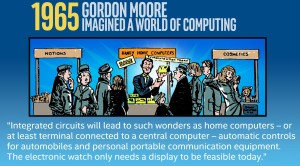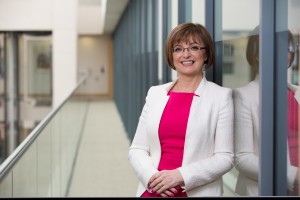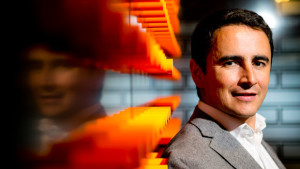Thirty years — three decades — is a long time in business. It is veritable aeons in the world of technology. And yet, that is how long ComputerScope, and now TechPro, has been the publication of record for the Irish information technology sector.
“Defining technology for businesses” was the tag line for quite some time, and remains a central plank of the publication’s mission. “Insight for IT leadership” now graces the masthead, reflecting the fact that information technology has gone from being a business support to a force that can drive the business, enabling agility previously undreamt of.
An awful lot has happened in Ireland since 1985, and even more has happened in the world of information technology. To capture something of the time and the future, we asked key figures in industry, some from the giants with decades of history as well as those that represent the new generation of tech companies, to give us their reminiscences of those technologies that made an impact since 1985, and for those that may have a similar effect in the future.
The result is a record in itself of breakthroughs, discoveries and some unexpected successes — with a few failures — as well as keen insights for businesses in the future.
| IBM — from CEO Watson to cognitive analytics Watson In the span of a century, IBM has evolved from a small business that made weighing scales, time clocks and tabulating machines to a globally integrated enterprise with a strong vision for the future.IBM has been in Ireland since 1956 and grown to occupy a key position within Irish industry. Many of the country’s leading businesses, large and small, benefit from IBM ideas, business innovation, technologies and people.Through the years, the company has changed the ideas about how businesses should operate, and contributed cultural touchstones from the IBM Selectric typewriter to the System/360 mainframe, from punch cards to the Personal Computer, from CEO Watson to Watson cognitive analytics. The world, as well as technology, never stops moving onwards. Influential technology the past 30 years During the early 80s, IBM installed the first Irish retail laser scanner system in L&N’s new supermarket in Cork. While at Bank of Ireland, its Computer Centre became home to an IBM 3084, which was the largest IT system to be installed in Ireland at the time. Meanwhile, the results of a technological revolution that had been in the making for four decades was quite literally, hitting Irish homes and businesses — Ireland was being introduced to the IBM PC.Before the PC arrived, the effort to tear down the wall between professional and personal computing had been a movement — the PC made it a standard. The PC era also created an ecosystem for technology introduction and changed how businesses manage computer systems, applications and add-on hardware developments, plus how they approached distribution channels.Since the 80s, laptop and desktop computers have become substantially commodity products — low-cost means for accessing data and information. It is a sign of IBM’s ability to continually transform itself that it divested its PC business in 2004, to focus on higher value systems and solutions. Transformation and growth When IBM began its operations in Ireland there were just three employees. Over the years IBM has grown to be one of the largest employers in the country with close to 4000 full-time employees. In 1996, IBM announced the development of its Technology Campus in Damastown, Dublin. Since then the portfolio of operations at the Campus has transformed from its initial manufacturing base to now include: IBM Research, Software Development, the European Digital Sales Centre; plus an ever-expanding set of services businesses that includes Data Centres, Cloud Computing, Business Analytics and Security Services supporting clients in Ireland and around the world. Into the future IBM’s view of the future centres on the impact of data. We have all seen the statistics about the vast quantities of data now being produced on a continuous basis. Data has always been at the heart of computing, but the challenge has been how to make sense of the huge volumes now available, and the fact that most of it is unstructured. Crucially, the technologies to deal with those issues are now becoming available, allowing all that data to be used for informed decision-making. IBM believes that entire industries will be transformed by this shift. While computing systems to date have delivered tremendous business and societal benefits by automating data processing to deliver enterprise and personal productivity, the machines of tomorrow — cognitive systems — will forever change the way businesses & people interact with computing systems and data. Cognitive computing systems learn and interact naturally with people to extend what either humans or machine could do on their own. These systems will help industries expand their expertise across their domains of knowledge such as healthcare, science, engineering, and legal, in a fraction of the time it currently takes. This was demonstrated when IBM Watson won Jeopardy!, the TV gameshow challenge in 2011. With Watson’s cognitive analytics it is clear that a new kind of computing system is emerging — one that can learn, reason, and understand natural language, making complex decisions involving extraordinary volumes of fast moving Big Data. Far from replacing our thinking, cognitive systems will extend our cognition and free us to think more creatively. In so doing, they will speed innovations and ultimately help build a Smarter Planet. |










Subscribers 0
Fans 0
Followers 0
Followers